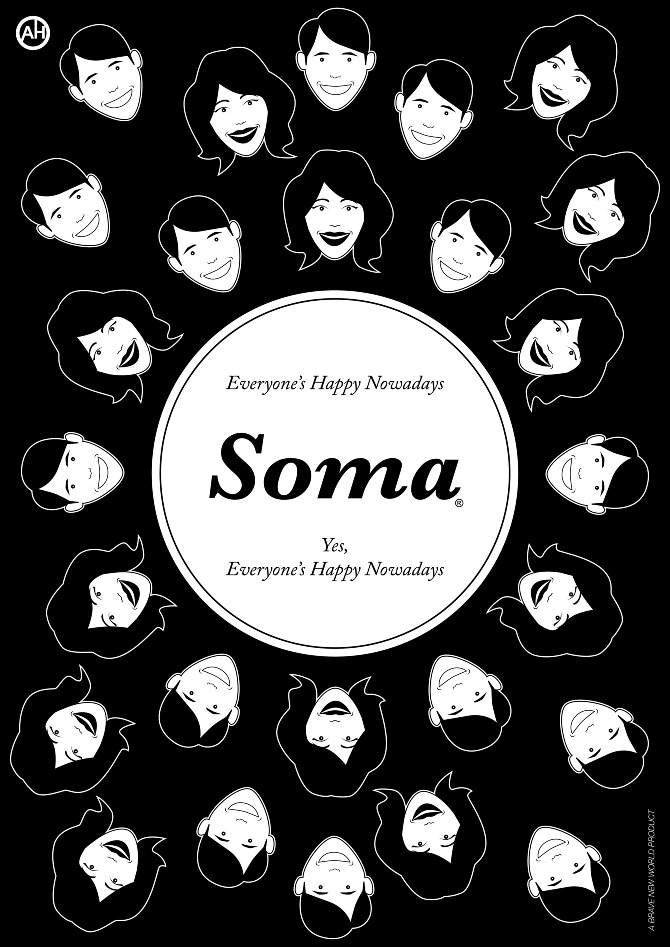 |
| How you look to a marketer |
"To make sense of the surveillance states that we live in, we need to do better than allegories and thought experiments, especially those that derive from a very different system of control. We need to consider how the power of surveillance is being imagined and used, right now, by governments and corporations.
"We need to update our nightmares . . ."
 |
 Marketing is nothing new, but what is new is the data behind it. The humans who run stuff (corporations, governments, churches, social media) have gotten so much better at eliciting beliefs from the rest of us, finding and pulling the strings that make people twitch one way or another. The combination of brain science, marketing knowhow, and reams of data is very difficult to beat. We may have free will (it's an open question among philosophers), but it's becoming clear we have less of it than we'd like to believe. Humans are, in the end, distressingly easy to manipulate. And we like it! We enjoy having the certainties of our convictions. We embody our beliefs as if we came up with them ourselves, and then we bask in the pleasure of hearing our thoughts echoed by those around us. This is especially true when opinions are polarized; your beliefs become even more precious to you when they are challenged. It's not just about belief anymore, it's about winning. It's about intellectual tribalism. Marketers know how to utilize that, too.
Marketing is nothing new, but what is new is the data behind it. The humans who run stuff (corporations, governments, churches, social media) have gotten so much better at eliciting beliefs from the rest of us, finding and pulling the strings that make people twitch one way or another. The combination of brain science, marketing knowhow, and reams of data is very difficult to beat. We may have free will (it's an open question among philosophers), but it's becoming clear we have less of it than we'd like to believe. Humans are, in the end, distressingly easy to manipulate. And we like it! We enjoy having the certainties of our convictions. We embody our beliefs as if we came up with them ourselves, and then we bask in the pleasure of hearing our thoughts echoed by those around us. This is especially true when opinions are polarized; your beliefs become even more precious to you when they are challenged. It's not just about belief anymore, it's about winning. It's about intellectual tribalism. Marketers know how to utilize that, too.
Dystopian literature, especially cautionary tales like 1984, can train a new generation to recognize and prevent oppressive government. That was critical in the 20th century, when the USSR had global aims and tremendous power. Any society that teaches Orwell in its high schools is very unlikely to wind up with an Orwellian state running things: the book inoculates a culture against that version of government. But since that's not the problem we're facing, what's a better vaccination? Tufekci proposes Aldous Huxley's Brave New World, which is not typically taught these days (my daughter was assigned Orwell, not Huxley), and which isn't selling especially well, certainly not compared to 1984—which has been flying off the shelves since Snowden's revelations. BNW puts forth the meme of "soma," a drug that keeps citizens happy, anxiety-free, and compliant, which might be a good stand-in for any number of seductive ideas sold to us by marketing-savvy institutions. I haven't read BNW since high school so I can't assess it, but I think Minority Report might also be a good book to dust off (and the movie ain't half bad, either): remember the mall scene? Very personalized advertisements.
What do you think? Do we need to retool our dystopian books and movies to warn us against the sweet whispers of insidious marketing instead of hard fist of autocratic regimes? Can we use literature to energize a new generation to be good critical thinkers, more skeptical of the ideas sold to them? Can "manipulative advertisers" ever compete with "tyrannical leader" for villainy? How would the hero fight back?


